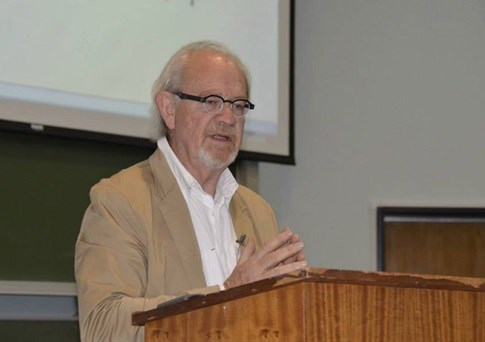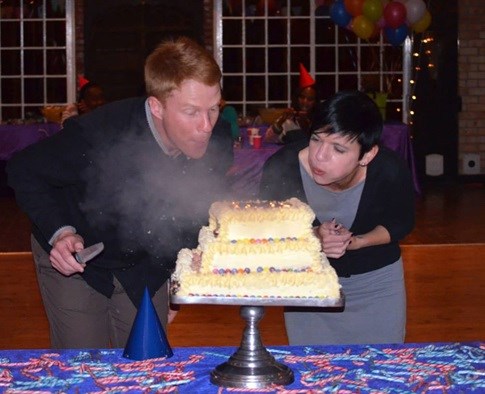
Related
Top stories



ESG & SustainabilityRedisa calls on govt to fix South Africa’s “broken” waste management system
2 hours

AgricultureGlobal geopolitical escalation raises risks for South African agriculture
Gilberto Biacuana 1 hour


The full spectrum of working in communication is somewhat staggering, when you think about it. It encapsulates all from the tech-savvy annual batch of journalism graduates who use multiple modes of communication - often simultaneously - to get their stories across, to the age-old academics who've been preaching the ABCs of the news cycle and information theory for decades. But we actually all have quite a bit in common, and should be learning from each other.
Dr Julie Reid of UNISA's department of communication science explains how the South African Communication Association or SACOMM is working towards this and shares her sobering, yet ultimately positive, take on the state of local communications industry...
 When did SACOMM form and what was the impetus behind it?
When did SACOMM form and what was the impetus behind it?Reid: SACOMM formed in 1974, so last year was already our 40th conference. The impetus behind SACOMM's formation was mainly the common feeling about communication scholars that there was a need for a collective body as communication started to grow rapidly in the country and across the continent.

 How does SACOMM work - what's its day-to-day functioning like?
How does SACOMM work - what's its day-to-day functioning like?Reid: There isn't one specific set of tasks to complete as the whole organisation is run by academic volunteers, so we slot in the bits and pieces where we can. For example, I'm currently taking care of all the admin, we have a list serve that keeps all the members in touch electronically, and arranging the annual conference and AGM is a hefty role - it all depends on the portfolio you're working on at the time.
 Let's dig a little deeper - SACOMM's tagline is 'cultivate insight' - how exactly is this done?
Let's dig a little deeper - SACOMM's tagline is 'cultivate insight' - how exactly is this done?Reid: 'Cultivating insight' is really about growing the existing body of knowledge in the South African communication fields ranging from corporate communication and general communication to media studies, film and journalism. It's about creating a platform where we can share the latest research findings and collaborate across the country with academics and communication specialists we'd otherwise never see. There's also an important mentoring capacity, where communication students and recent graduates are taken under our wing and given the opportunity to learn and grow, thereby ensuring a better future across the communication discipline in future.

 Tell us how SACOMM members benefit?
Tell us how SACOMM members benefit?Reid: It differs across the different categories and our boundaries are flexible - we offer full membership to affiliates, most of whom work full time in academia or are industry stakeholders. We also offer student membership for undergraduates. Membership means you get to take advantage of the network we've established across the country, putting you first in line to take advantage of the latest research updates, collaborate, share ideas and talk to others in the industry about the specific challenges we're facing so that you're not quite so isolated, as can happen when you specialise in this field.
 How does SACOMM assist the different communication genres of corporate communication, general communication, media studies, film and journalism? Is there much overlap?
How does SACOMM assist the different communication genres of corporate communication, general communication, media studies, film and journalism? Is there much overlap? Reid: As with any field, convergence is key. We split the focus into different areas a few years ago in order to better focus our discussions within these different streams to ensure they all get a chance in the spotlight - each interest group has a specific group convenor. That said, they do - and should - overlap - the distinction is only there to ensure we have more focused discussion on the specific genres covered, but all do work well together, as seen each year at the SACOMM conference.

 Tell us about the annual SACOMM conference...
Tell us about the annual SACOMM conference...Reid: Well, they're held once a year, with a different university hosting each time. The 2014 version was held at North West University in Potchefstroom. It's fun as it's usually the only time of year all of us who keep SACOMM running get to see each other face-to-face. Last year's speaker line-up was great, including Max du Preez, and Dale McKinley of the Right2Know campaign - SACOMM is also a signatory of the Right2Know Campaign, and I sit on the National Working Group of the Right2Know Campaign - so we have quite a bit of involvement there, too. You can read an overview of my presentation on threats to freedom of expression in South Africa by clicking here. Through the conference we've had more of an impact on civil society by addressing this type of concern about freedom of expression, and through the SOS coalition that supports public broadcasting, we're taking more of a political stand - all of this action works together to pull academics out of the ivory tower and put them on the journalistic playing ground where it's all happening.

 Sounds like a necessary move. How does the local communications industry compare to the rest of the continent?
Sounds like a necessary move. How does the local communications industry compare to the rest of the continent? Reid: South Africa's not as advanced as some make us out to be, as much as we'd like to be. In comparison to other countries on the continent we're actually quite behind - think of the plethora of media companies in Nigeria, and Uganda with its 1,000+ radio stations. Some African countries are already making use of digital broadcast methodologies too, and have lower broadband costs than we do, so they're really flourishing online. That's why I'd caution against anyone being arrogant about South Africa's media. The market is nowhere near as diverse as it could -and should - be, and unfortunately we have a long way to go still before we're on the right track to offering more in this regard.
 Taking this thought further afield then, how does the local communications industry compare to the rest of the world?
Taking this thought further afield then, how does the local communications industry compare to the rest of the world?Reid: There's no denying that much of the Western world has developed some exciting new media strategies and platforms. Unfortunately, instead of working on its own model, South Africa emulates these mature democracies rather than looking to a communication model that would work best within our specific framework. This isn't just in the mass media but even affects our satellite subscriptions and telecommunications industries. We need to stop simply reflecting what works in the West. The only exception I can see is the SABC as it's state-run, but problems at the SABC abound - it is underfunded, badly managed, suffers from a plague of bad leadership and maladministration, and many journalists are in that context forced into self-censorship. This makes it hard to produce satisfactory levels of media diversity, especially diverse news media content - important when so many people receive their news from the SABC only as they simply can't afford anything else. We do have a burgeoning investigative culture, but really need more impetus all round before the South African communications industry truly finds its feet.

 Lastly, is enough being done to adequately train tertiary-level communication students for the world of work?
Lastly, is enough being done to adequately train tertiary-level communication students for the world of work? Reid: It all depends on the actual university or institution in question. Some do offer more theoretical courses, some are exceedingly specialised and practical-focused. That said, we simply can't change the syllabus fast enough to keep up with the largely technical-driven changes in the industry - it's a constant challenge.
Seems the adage that 'a problem shared is a problem halved' certainly holds true for this challenge. For more on SACOMM, visit their website.
